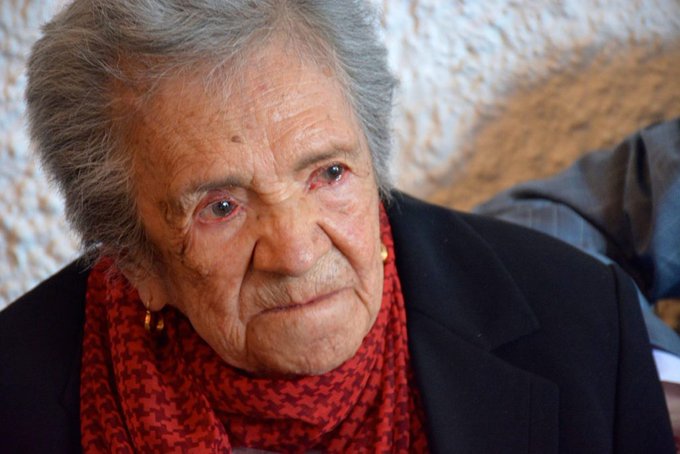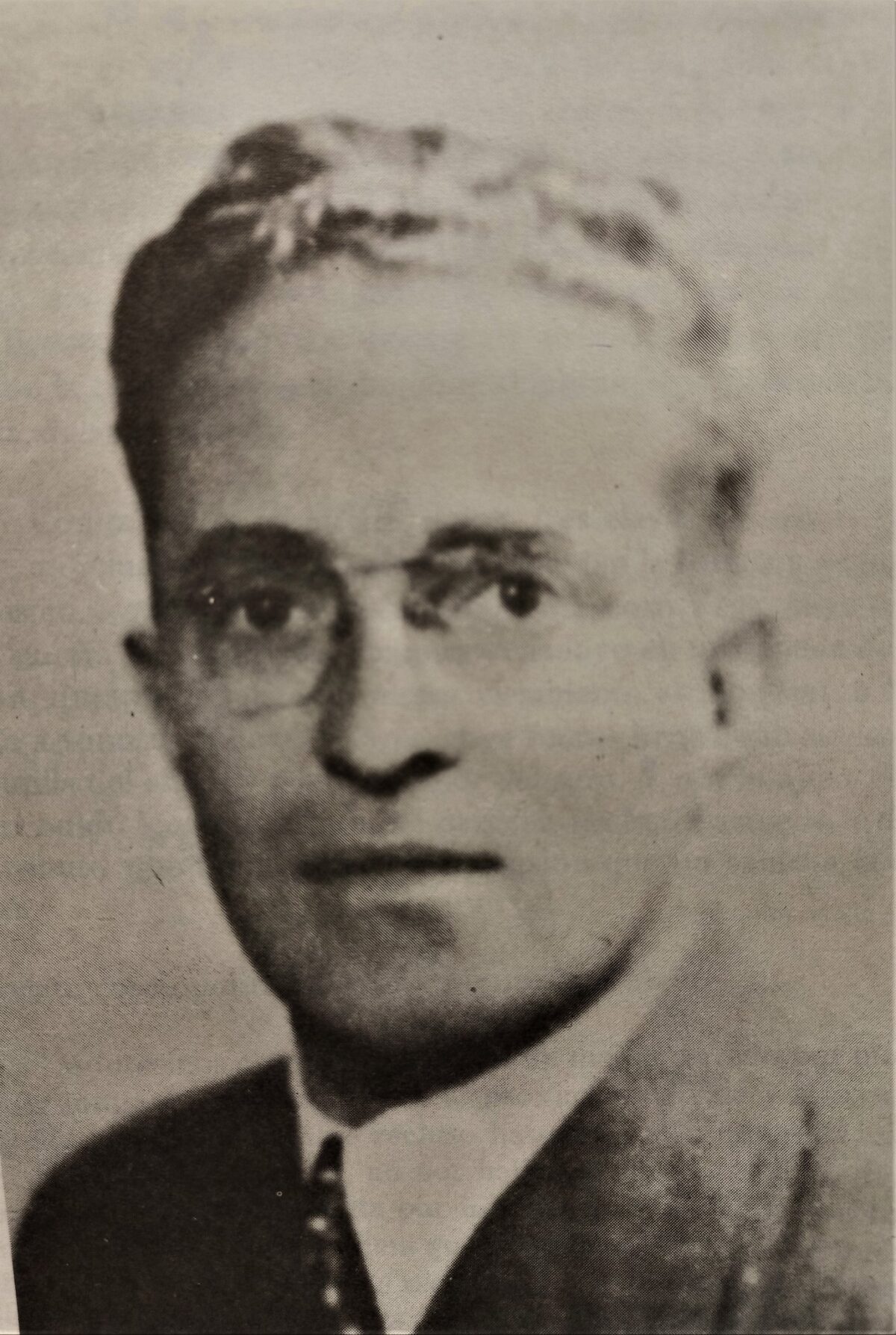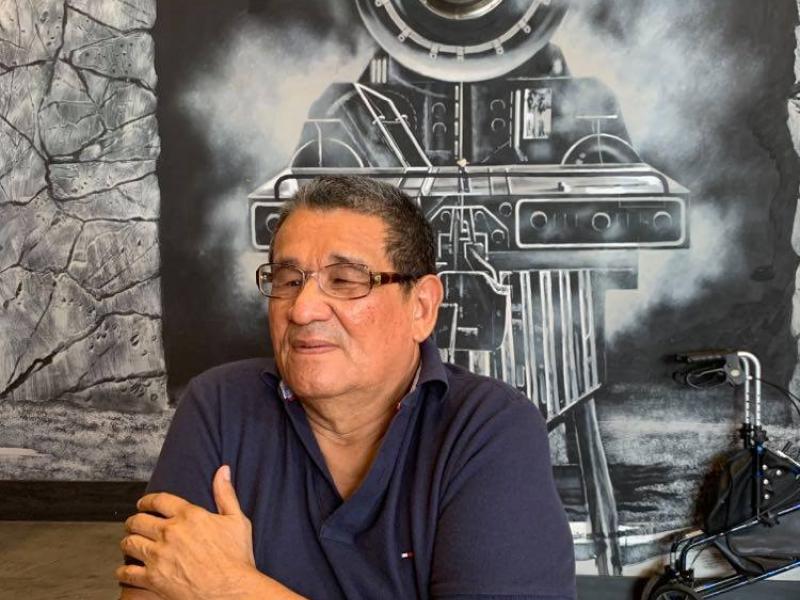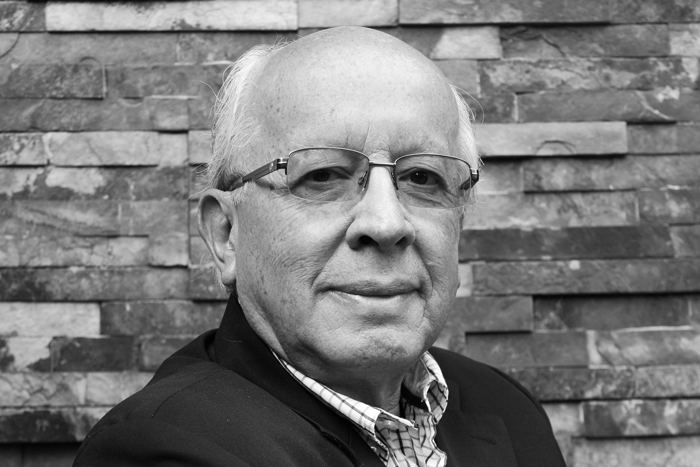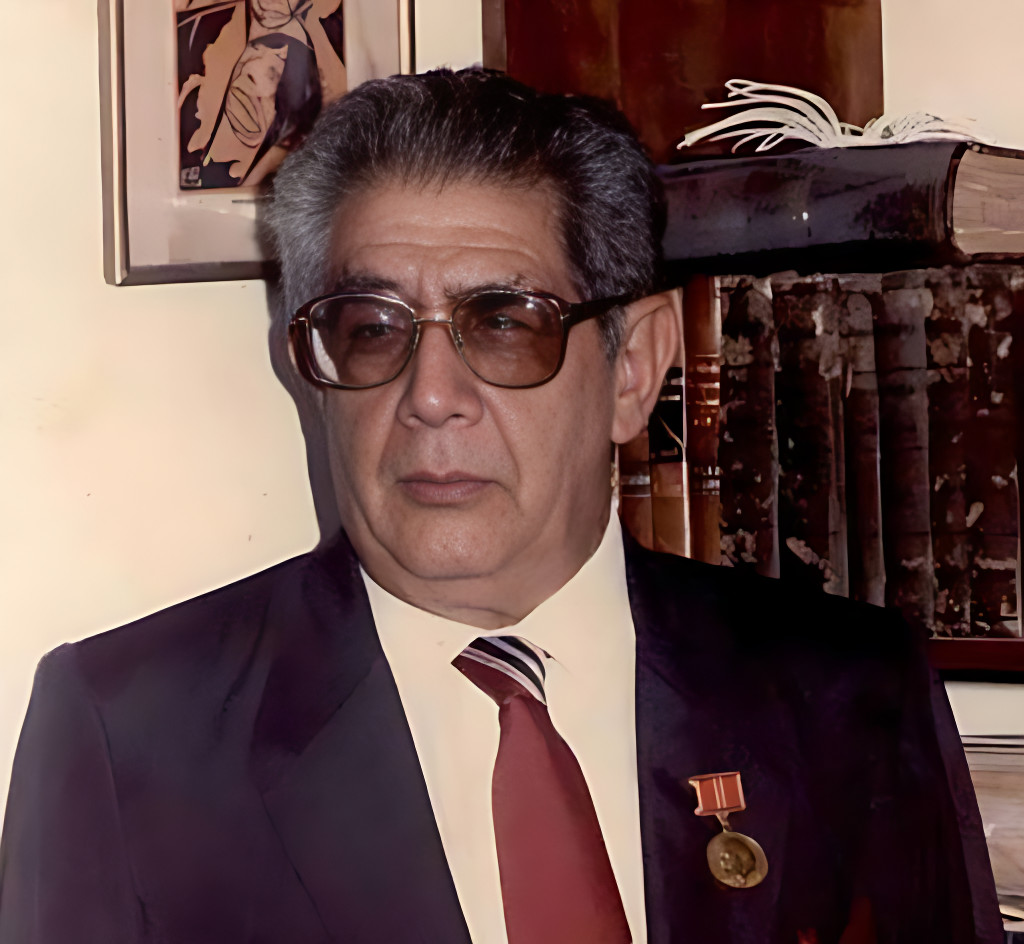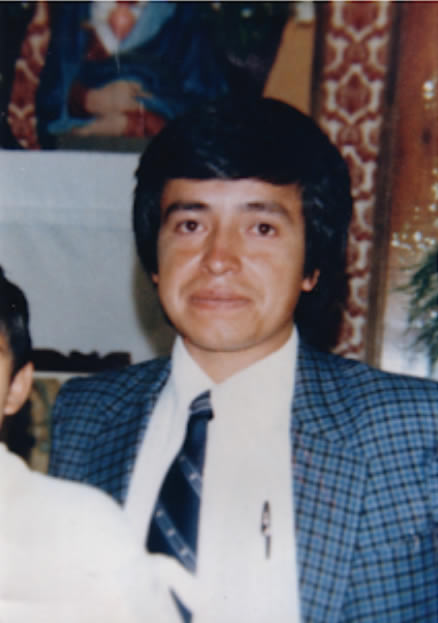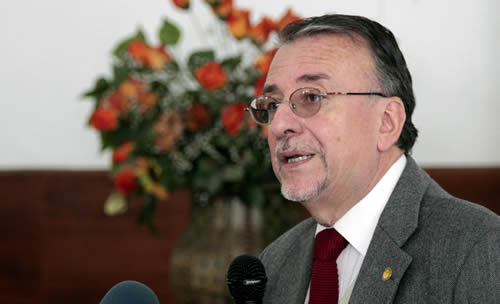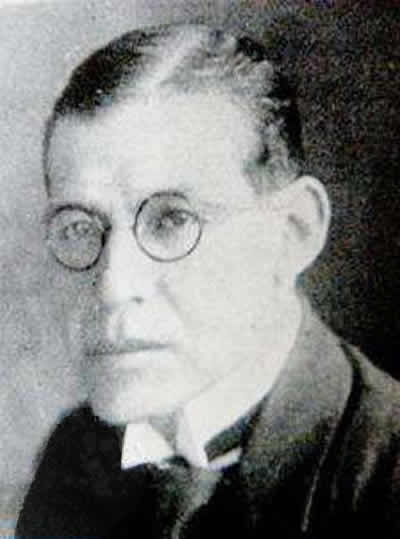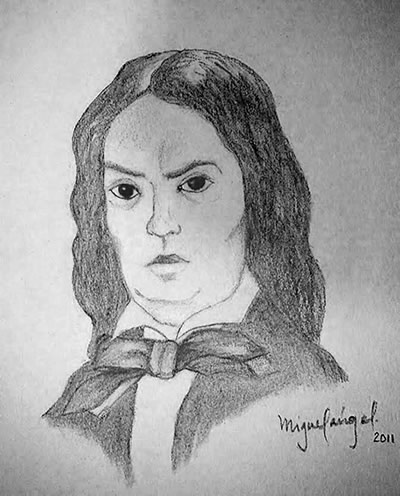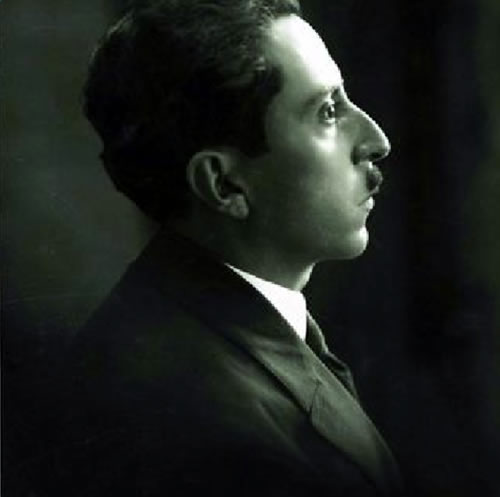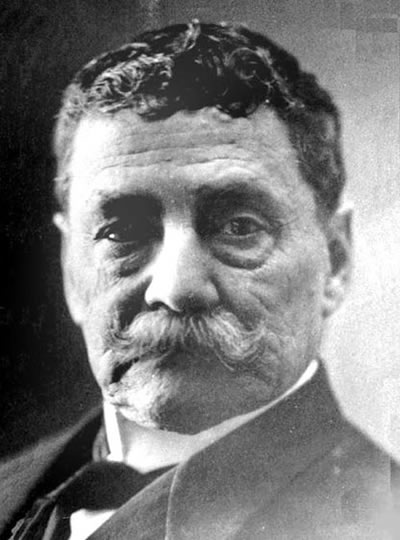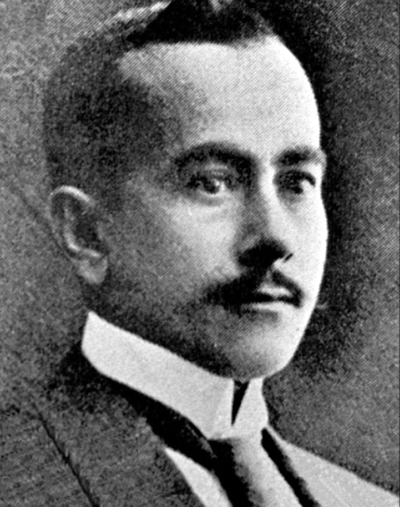Inés Márquez Moreno (Cuenca, June 7, 1914 – August 18, 2017) was an Ecuadorian poet. Her first poetry collection, “Denuncia del sueño,” was published by the House of Ecuadorian Culture in Azuay in 1963. Her style is characterized by great simplicity and evocative force, and her subjects include love, land, friendship, and family. In 1994, the House of Ecuadorian Culture published her second collection of poems, “Camino de mediodía.” She was awarded the Fray Vicente Solano Medal by the city of Cuenca, which is given to the city’s most distinguished authors. She was a member of the Ibero-American Academy of Poetry in Cuenca since its inception. She continued to write into her 90s and died at the age of 101.
Continue reading “Inés Márquez Moreno”Category: 20th Century Writers
César Salcedo Parrales
César Salcedo Parrales, pseudonym Galo Salcedo (Machala, Ecuador, August 22, 1938 – August 16, 2011) was an Ecuadorian writer, painter, educator, journalist and historian. He authored approximately 13 books and several articles for various publications. He primarily wrote historical works about Machala and the province of El Oro. He was a member of the Association of Latin American and Caribbean Historians, the Association of Historians of Ecuador, and the House of Ecuadorian Culture’s history section in El Oro. The provincial historical archive bears his name.
Continue reading “César Salcedo Parrales”Arturo Montesinos Malo
Arturo Montesinos Malo (Cuenca, August 31, 1913 – May 23, 2009) was an Ecuadorian novelist, professor, and translator who lived in the United States for many years where he worked as a translator at the United Nations in New York. In 1959, he received the “José de la Cuadra” Award for his short story collection “Arcilla indócil,” which is considered by many to be his best work. Some of his Spanish-to-English translations of contemporary writers’ short stories and poems appeared in Letras del Ecuador.
Continue reading “Arturo Montesinos Malo”Dalton Osorno
Dalton Osorno (Jipijapa, 1958) is an Ecuadorian writer, poet, literary critic, and retired professor. His short novel, “Sonata para jaibas y cangrejos,” won the 2020 La Linares award, which he shared that year with Hans Behr Martinez, who was recognized for his own short novel. Orsono has published a collection of short stories and several collections of poetry. His book of poems, “No hay peor calamidad, desfachatez, infatuamiento que un poeta enamorado,” was awarded the Unique Prize at the VII National Literature Contest in Guayaquil. He has lived in Guayaquil since 1970.
Continue reading “Dalton Osorno”Gonzalo Ortiz Crespo
Gonzalo Ortiz Crespo (Quito, October 18, 1944) is an Ecuadorian journalist, essayist, historian and writer. He has written three novels: Los hijos de Daisy (2009), Alfaro en la sombra (2012) and Pecunia non olet (2021), a corruption thriller which made it to Primicia.ec’s 2021 list of “the 10 books by Ecuadorian writers that marked the year.” He is a member of the Ecuadorian Academy of Language and the National Academy of History. He wrote for the newspapers El Tiempo, Hoy, EL COMERCIO and the magazine Gestión. He has worked as a university professor and has held various posts such as secretary of communication, secretary of the administration of President Rodrigo Borja, and councilor of Quito.
Continue reading “Gonzalo Ortiz Crespo”Elías Muñoz Vicuña
Elías Muñoz Vicuña (Yaguachi, Guayas, May 10, 1922 – Guayaquil, February 10, 1997) was an historian, writer, university professor, and member of the Ecuadorian Communist Party. His historical essays include: El 15 de Noviembre de 1922 (1978), Biografía de Olmedo (1980), and Papel Histórico de Vicente Rocafuerte (1983). In 1976 he was appointed professor of Economic, Social and Political History of Ecuador at the Faculty of Economics of the University of Guayaquil; in 1984 he was declared a member of the Institute of Labor Law; and in 1985 member of the Guayas chapter of the House of Ecuadorian Culture, and Visiting Professor of the Institute of Diplomacy of the University of Guayaquil. In 1983 he became a member of the National Academy of History. He traveled to many countries as a representative of the Ecuadorian Communist Party, including to Cuba in 1966 per the invitation of Fidel Castro; and in 1970 at the Centenary of Lenin’s birth in Ecuador, the Soviet Union awarded him with the “Lenin Gold Medal” in a public ceremony. Several educational institutions are named after him in Guayaquil.
Continue reading “Elías Muñoz Vicuña”Gustavo Garzón
César Gustavo Garzón Guzmán (Quito, June 8, 1958) was an Ecuadorian writer and literary critic who vanished without a trace on November 9, 1990. In 1980, he joined Miguel Donoso Pareja’s literary workshop at the House of Ecuadorian Culture and co-founded the literary group “La Mosca Zumba.” On November 9, 1990, he went out with a group of friends to a dance club and was never seen again. At the time, the 32-year-old writer was living in Quito, Ecuador, where he was working on his doctoral thesis in Literature at the Pontifical Catholic University of Ecuador. On January 28, 2021 the Ecuadorian government admitted responsibility for his kidnapping before the Inter-American Court of Human Rights. A documentary about his life, “Brutal como el rasgar de un fósforo,” was made in 2021.
Continue reading “Gustavo Garzón”Enrique Ayala Mora
Enrique Ayala Mora (Ibarra, November 13, 1950) is an Ecuadorian historian, essayist, editor, university professor and politician. He works as a professor at the Central University of Ecuador and the Simón Bolívar Andean University. He was a deputy of Ecuador, vice president of the National Congress and member of the Constituent Assembly (1997-1998). He is currently the President of the Ecuadorian Socialist Party. As an editor and writer, he has published over 30 works on history and politics.
Continue reading “Enrique Ayala Mora”Sergio Nuñez
Sergio Núñez Santamaría (Santa Rosa, Ambato, October 7, 1896 – Quito, 1982) was a novelist, short story writer, poet, playwright, literary critic and pedagogue. As a poet, he wrote in verse and prose, and was greatly influenced by the modernismo literary movement of Ruben Dario of Nicaragua. In 1918 he published his first poetry book, “Hostias de fuego,” with a prologue by Medardo Ángel Silva. He belonged to the “30 Generation,” a group of authors from the 1930’s Ecuador who used social realism in their fiction to denounce how Indians were treated in Ecuador. His novellas “Juego de hacienda” and “Circunferencia” are considered Indigenista fiction. A private school in Guayaquil bears his name.
Continue reading “Sergio Nuñez”Eloy Proaño
Eloy Proaño Donoso (1890-1965) was an Ecuadorian poet. In 1946 he published a poetry collection, “Humo.”
Continue reading “Eloy Proaño”Luis F. Veloz
Luis F. Veloz (Quito, 1885-1959) was an Ecuadorian poet and sculptor. Along with his friends Aurelio Falconí and Julio E. Rueda, he founded Altos Relieves, one of the first magazines to publish young poets influenced by modernismo in Ecuador. His poems were published in Altos Relieves and the magazine Revista de la Sociedad Jurídico-Literaria. He wrote about art and translated some of the poems of the Italian poet Gabriele D’Annunzio into Spanish. He stopped writing verses to focus on sculpting. In 1918, the Ecuadorian government sponsored him to go the school of Fine Arts in Rome, where he lived for many years. He’s best remembered for his controversial marble statue La Bacante y el Fauno, which was commissioned by the Illustrious Municipal Council of Quito (Ecuador) and created in Rome. Today this statue can be found in the Malecon 2000 in Guayaquil. A collection of his poems and some plays have yet to be published.
Continue reading “Luis F. Veloz”Felix Valencia
Felix Valencia Vizuete (Latacunga, August 31, 1886 – Quito, January 3, 1919) was an Ecuadorian poet often called the “Poet of Sorrow.” During his lifetime he published the books “Cantos de vida y muerte” [Songs of Life and Death] (1911) and “La epopeya de San Mateo” [The Epic of Saint Matthew] (1914). In 1934, his friend, writer and journalist Alejandro Andrade Coello, published “Los poemas del dolor” (Poems of Sorrow), a posthumous collection of his poems. Valencia’s life and work were marked by loneliness, misanthropy and melancholy.
Continue reading “Felix Valencia”Alfonso Moreno Mora
Alfonso Moreno Mora (Cuenca, April 21, 1890 – Cuenca, April 1, 1940) was a modernist poet. He co-founded the magazine Páginas Literarias with his cousin Miguel Moreno Serrano in 1918, becoming its editor in chief. He published poems in this magazine under the pseudonyms Enrique de Rafael and Raedel. He also promoted the work of modernist poets such as Argentina’s Leopoldo Lugones and Nicaragua’s Rubén Darío. Some of the magazines that published Moreno Mora’s poems include Austral, Azul, Proteo, and América Latina. He also contributed to the daily newspapers Diario del Sur, La Nación, and El Mercurio. He was a member of Ecuador’s so-called Decapitated Generation and authored works such as “Visión lírica,” “Epístola a Luis Felipe de la Rosa,” and “Elegías.” On April 1, 1940, shortly before his 50th birthday, Alfonso Moreno Mora passed away in his hometown. Eleven years later, his brother and fellow poet Manuel Moreno Mora published “Alfonso Moreno Mora. Poesía,” a compilation of his literary work.
Continue reading “Alfonso Moreno Mora”Roberto Andrade
Roberto Andrade Rodríguez (October 26, 1850 – October 27, 1938) was a politician, historian, author and polemicist. He was a participant in the assassination plot against President Gabriel Garcia Moreno. On August 6, 1875, Garcia Moreno was beaten with a machete while three or four others shot revolvers at him. Andrade landed a deadly shot to Moreno’s forehead. Throughout his life Andrade was persecuted for his polemicist essays and political ideology. “Pacho Villamar,” his semi-autobiographical work from 1900, is widely considered Ecuador’s first political novel.
Continue reading “Roberto Andrade”Carlos A. Rolando
Carlos Alberto Rolando Lobatón (Guayaquil, September 13, 1881 – Guayaquil, January 5, 1974) was an Ecuadorian doctor, writer, and renowned bibliographer. Known for his contributions to Ecuadorian literature and history, he opened his vast personal library to the public in 1913. Rolando was appointed director of the University of Guayaquil Library in 1925 and became a numerary member of the National Academy of History. In 1930, he founded the Guayaquil Historical Research Center and played a key role in preserving Ecuador’s cultural heritage. The National Authors Room at the Municipal Library of Guayaquil is named in his honor.
Continue reading “Carlos A. Rolando”
